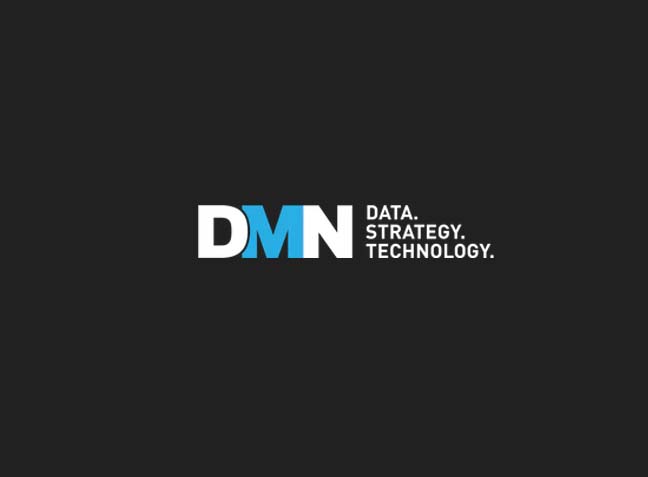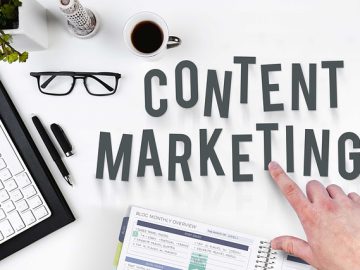In today’s fast-paced marketing world, having the right tools can make all the difference. ERP (Enterprise Resource Planning) systems help marketing departments streamline their processes, improve collaboration, and enhance productivity. This article highlights the top ERP systems that can empower your marketing team to achieve greater success.
Key Takeaways
- ERP systems help centralize data, making it easier for teams to access important information.
- Choosing the right ERP can boost efficiency and save time for marketing departments.
- Many ERP solutions offer customizable features to fit specific business needs.
- It’s essential to consider your budget and the system’s scalability for future growth.
- Research and testing are crucial steps before committing to an ERP system.
1. Odoo
Odoo is a powerful ERP system that stands out for its customization options. It’s designed to fit various business needs, making it a favorite among many companies. With Odoo, you can manage everything from customer relationships to inventory and even project management, all in one place.
Key Features of Odoo:
- Open Source: This means you can modify it to suit your specific needs.
- User-Friendly: The interface is easy to navigate, which is great for new users.
- Community Support: There’s a large community that can help you with tips and resources.
Pros and Cons:
| Pros | Cons |
|---|---|
| Highly customizable | Can be complex for small IT teams |
| Affordable options available | Limited features in the free version |
| Integrates with popular apps | Customization can be costly |
Odoo is not just about managing tasks; it’s about enhancing your overall business strategy. As I learned from various sources, it’s crucial to integrate your marketing efforts with other business processes. This way, you don’t put all your eggs into the e-marketing basket.
Odoo’s flexibility allows businesses to adapt and grow, making it a valuable tool for any marketing department.
In summary, if you’re looking for an ERP that can grow with your business and adapt to your needs, Odoo is definitely worth considering!
2. NetSuite
NetSuite is a powerful cloud-based ERP system that stands out for its customization and flexibility. It’s designed to help businesses manage everything from finances to customer relationships. Here’s what I’ve found about it:
Key Features
- User-Friendly Dashboards: NetSuite offers intuitive dashboards that make it easy to track important metrics.
- Comprehensive Reporting: It provides excellent reporting tools that help in making informed decisions.
- Integration Capabilities: You can connect it with many other applications, enhancing its functionality.
Pros and Cons
| Pros | Cons |
|---|---|
| Highly customizable for various needs | Implementation can be complex |
| Excellent customer support | Not the cheapest option available |
| Scalable for growing businesses | May require dedicated IT resources |
NetSuite ranks high for its customization and flexibility, making it suitable for almost any business. However, some users complained about its erratic pricing.
In summary, if you’re looking for an ERP system that can adapt to your business needs, NetSuite is a strong contender. It’s not just about managing resources; it’s about making your marketing department more efficient and effective!
3. Microsoft Dynamics 365
Microsoft Dynamics 365 is a powerful tool that combines both ERP and CRM features. This makes it a great choice for businesses looking to streamline their operations. With its ability to connect various business processes, it helps in managing everything from sales to customer service.
Key Features:
- Integrated AI: Dynamics 365 uses AI to automate tasks, making work easier and faster.
- Real-time Data: You can access up-to-date information, which helps in making informed decisions.
- Customizable Workflows: The system allows you to tailor processes to fit your specific needs.
Pros and Cons:
| Pros | Cons |
|---|---|
| Easy integration with Microsoft tools | Can be slow at times |
| Comprehensive reporting capabilities | Requires a learning curve |
| Scalable for growing businesses | May need high-end hardware |
Microsoft Dynamics 365 is especially beneficial for companies already using Microsoft products. It allows for a smoother transition and better functionality.
In summary, if you’re looking for a system that can handle various aspects of your business while providing flexibility, Microsoft Dynamics 365 is worth considering. It’s designed to help you improve operations and engage customers effectively. With its robust features, it stands out as one of the best ERP systems for marketing departments.
4. SAP
SAP is a big name in the world of ERP systems, especially for large businesses. It offers a powerful solution called SAP S/4HANA, which is designed to help companies manage their resources effectively. This system is known for its user-friendly interface and ability to handle complex business processes.
Key Features of SAP S/4HANA:
- Real-time analytics: Get instant insights into your business data.
- Customizable workflows: Tailor the system to fit your specific needs.
- Cloud and on-premises options: Choose how you want to deploy the software.
One of the standout aspects of SAP is its ability to support multinational companies. It provides comprehensive regulatory compliance and localization support, making it easier for businesses to operate in different countries.
However, there are some challenges. Implementing SAP can be complex and may require a lot of time and resources. Additionally, it is one of the more expensive ERP solutions available.
SAP S/4HANA is a top choice for large organizations looking for a robust ERP system that can grow with them.
In summary, SAP is a strong contender in the ERP market, especially for those who need a system that can handle a wide range of business processes. If you’re considering an ERP system, keep in mind that SAP can help you manage your marketing efforts effectively, especially as you look to improve customer engagement and track your marketing initiatives.
5. Oracle
When it comes to ERP systems, Oracle stands out as a powerful choice for many businesses. They offer two main products: Oracle Fusion Cloud ERP for larger companies and Oracle NetSuite for smaller ones. This gives them a unique position in the market.
Key Features of Oracle ERP
- Comprehensive Solutions: Oracle provides a wide range of tools that cover everything from finance to supply chain management.
- User-Friendly: Many users find Oracle’s systems easy to navigate, which helps teams get up to speed quickly.
- Strong Support: With extensive resources available, including user groups and forums, help is always at hand.
Performance Highlights
| Feature | Oracle Fusion Cloud | Oracle NetSuite |
|---|---|---|
| Revenue (Q3 2023) | $800M | $800M |
| Growth Rate | 18% | 21% |
| Market Position | Leader | Best All-Around |
Oracle’s ability to integrate profitability analysis and risk management with marketing functions makes it a top choice for many organizations.
In summary, Oracle’s ERP systems are designed to meet the needs of various businesses, whether large or small. They combine powerful features with user-friendly interfaces, making them a solid option for any marketing department looking to enhance their operations.
6. Acumatica
Acumatica is a cloud-based ERP system that stands out for its user-friendly interface. It’s designed to help businesses manage their operations smoothly. Here’s what I find impressive about it:
- Flexible Licensing: Acumatica offers different plans to fit various budgets and needs.
- Industry-Specific Modules: It has tailored solutions for sectors like construction, distribution, and manufacturing.
- Role-Based Dashboards: Users can access information that’s relevant to their specific roles, making it easier to get work done.
Pros and Cons
| Pros | Cons |
|---|---|
| Simple interface | Customization can be complex |
| Good for various industries | Fewer third-party integrations |
| Strong reporting features | Interface could be improved |
Acumatica is particularly useful for companies looking to improve their employee performance. It allows teams to monitor key metrics like profitability and customer satisfaction.
Acumatica’s ability to integrate with other systems and its mobile accessibility are two unique features that enhance its effectiveness as an ERP platform.
In summary, if you’re in the market for an ERP system that’s easy to use and adaptable, Acumatica is definitely worth considering. It’s a solid choice for businesses aiming to streamline their operations and boost productivity.
7. SYSPRO
SYSPRO is a powerful ERP system that is especially great for distribution companies. It helps you manage large orders and keep track of your inventory efficiently. With SYSPRO, you can also handle goods that are in transit and manage returns and chargebacks easily.
Key Features:
- Sales Analysis: Understand market trends and identify your best customers.
- Goods in Transit System: Keep track of items that are on their way to you or your customers.
- Charge-Back Management: Handle returns and refunds smoothly.
Pros and Cons:
SYSPRO is ideal for distribution companies looking to optimize their operations and grow. It’s a solid choice if you want to streamline your processes and make informed decisions based on real-time data.
In summary, SYSPRO stands out for its ability to analyze sales and manage inventory effectively, making it a top choice for businesses in the distribution sector.
8. Striven
Striven is a powerful ERP system that I find particularly useful for marketing departments. It offers a range of features that can help streamline various processes. With Striven, I can manage everything from accounting to customer relationships, all in one place.
Key Features
- Affordable Pricing: Starting at just $35 per month, Striven is budget-friendly.
- Comprehensive Tools: It includes tools for accounting, CRM, inventory management, project tracking, and reporting.
- User-Friendly Interface: The platform is designed to be easy to navigate, making it accessible for everyone in the team.
One of the standout features of Striven is its ability to integrate different functions seamlessly. This means I can easily track customer interactions and manage projects without switching between multiple systems.
Striven helps me keep everything organized, which is crucial for effective marketing campaigns.
In summary, Striven is a solid choice for marketing departments looking for an all-in-one solution. Its affordability and range of features make it a great option for small to medium-sized businesses.
Highlights
- Customer Lifecycle Management: Striven supports targeted campaigns by integrating customer data with real-time insights, ensuring the right message reaches the right audience at the right time.
Overall, if you’re in the market for an ERP system that can enhance your marketing efforts, Striven is definitely worth considering!
9. Sage Intacct
Sage Intacct is a powerful tool that focuses on accounting but also offers some ERP features. It’s especially great for small and midsize businesses. This software helps manage finances easily, making it a favorite among many users.
Key Features
- Cloud-based: You can access it from anywhere, which is super convenient.
- Integrations: It connects with many other apps, like Mailchimp and Asana, to automate tasks.
- Custom Reports: You can create reports that fit your needs without much hassle.
Pros and Cons
Pros:
- Excellent for accounting tasks.
- Easy to scale as your business grows.
- Good for industries like nonprofits and healthcare.
Cons:
- Limited features beyond accounting.
- Relies on third-party tools for some functions.
- Not as customizable as some other ERP systems.
Sage Intacct is a solid choice if you want to simplify your financial processes while still having some ERP capabilities.
In summary, while Sage Intacct shines in accounting, it may not be the best fit for every business. However, it’s a strong contender for those looking to streamline their financial operations.
In the world of ERP, it’s important to find a system that meets your specific needs. For example, Yahoo recently partnered with Siebel Systems to enhance its marketing and infrastructure capabilities, showing how tailored solutions can improve efficiency.
Overall, if you’re focused on accounting with some ERP features, Sage Intacct is worth considering!
10. Katana Manufacturing ERP
Katana Manufacturing ERP is a powerful tool designed specifically for manufacturing companies. It helps streamline production planning and manage costs effectively. With features like material tracking and purchase order management, it ensures that you always have what you need to fulfill orders on time.
Key Features
- Production Planning: Automates material allocation based on your priorities.
- Cost Tracking: Keeps an eye on manufacturing costs to help you make smart pricing decisions.
- Purchase Order Management: Alerts you when to buy raw materials and tracks potential supply chain delays.
Pricing
| Plan Type | Monthly Cost | Free Trial |
|---|---|---|
| Basic | $179 | Yes (14 days) |
Katana is especially useful for small to medium-sized businesses in the manufacturing sector. It offers a user-friendly interface and integrates well with other tools, making it easy to adapt to your needs.
Katana is not just for manufacturing; its open API allows for custom workflows and third-party integrations, making it versatile for various industries.
Pros and Cons
Pros:
- Real-time costing tools for better pricing decisions.
- End-to-end traceability for materials and batches.
- Excellent customer support and easy onboarding.
Cons:
- The lowest-tier plan is limited to one user.
- Lacks advanced features like Gantt charts and multi-language support.
In summary, Katana Manufacturing ERP is a solid choice if you’re looking for a system that can help you manage your manufacturing processes efficiently. It’s designed to make your life easier, so you can focus on growing your business!
11. Inventory Planner by Sage
When it comes to managing inventory, Inventory Planner by Sage stands out as a powerful tool. It helps businesses forecast their inventory needs, making it easier to purchase the right amount of stock at the right time. This can save money and reduce waste, which is crucial for any marketing department.
Key Features
- Forecasting: Predict future inventory needs based on sales trends.
- Purchasing: Streamline the ordering process to ensure you have what you need.
- Reporting: Generate detailed reports to analyze inventory performance.
- Analytics: Use data to make informed decisions about stock levels.
Pricing
| Plan Type | Monthly Cost |
|---|---|
| Basic Plan | $249.99 |
| Premium Plan | Contact for pricing |
Why Choose Inventory Planner?
- User-Friendly: The interface is easy to navigate, making it accessible for everyone.
- Integration: It works well with other Sage products, enhancing overall functionality.
- Scalability: Suitable for businesses of all sizes, from small startups to large enterprises.
Inventory management is not just about keeping track of stock; it’s about making smart decisions that drive success.
In summary, Inventory Planner by Sage is a solid choice for any marketing department looking to optimize their inventory management. With its robust features and user-friendly design, it can help streamline processes and improve efficiency.
12. Cougar Mountain Denali Summit
Cougar Mountain Denali Summit is a powerful ERP system designed especially for nonprofits. It offers unique features that help organizations manage their finances effectively. With tools for fraud prevention and customizable financial reports, this software ensures that your organization stays on track and compliant with regulations.
Key Features:
- Fraud Prevention: Individual user rights and audit trails help protect your organization from fraud.
- Financial Reports: Prebuilt reports that meet Financial Accounting Standards Board (FASB) standards.
- Grant Management: Easily track donations and grants with the help of NeonCRM integration.
Pros and Cons:
Pros:
- Special tools tailored for nonprofits.
- Customizable financial reports.
- Strong fraud prevention features.
Cons:
- Pricing is not listed; you must contact for details.
- No free trial available.
- Some users find it challenging to navigate.
Cougar Mountain Denali Summit is a great choice if you’re a nonprofit looking to enhance your financial management. It can help you avoid issues and set your organization up for growth.
In summary, if you want a system that supports your nonprofit’s unique needs, Cougar Mountain Denali Summit is worth considering. It combines essential features with a focus on security and compliance, making it a solid choice for organizations aiming to thrive in their missions.
13. AccountMate

AccountMate is a solid choice for small businesses looking to manage their finances effectively. This ERP system focuses on financial management, making it easier to handle your accounting needs. With features like accounts payable and receivable, it helps you avoid duplicate invoices and late payments.
Key Features
- Customer Inventory Manager: Keep track of your inventory easily.
- Consolidated Ledger: Manage all your financial data in one place.
- Bank Reconciliation: Ensure your cash flow is accurate and up-to-date.
Pros and Cons
Pros:
- Helps prevent invoice duplicates.
- Simplifies cash flow management.
- Integrates with Microsoft Office for better customer interaction.
Cons:
- Pricing is not listed; you must contact them for details.
- The interface can be a bit confusing for new users.
- Data uploading may be slow at times.
AccountMate is perfect for those who want a flexible ERP system focused on financials. It’s designed to help you manage your business efficiently.
In summary, if you’re looking for a reliable ERP system that prioritizes financial management, AccountMate is worth considering. It stands out as one of the best ERP systems of 2024, according to various reviews, including those from Forbes Advisor.
14. Dynamics 365 Business Central
Microsoft Dynamics 365 Business Central is a powerful ERP system designed to help small businesses manage their operations effectively. It brings together sales, service, operations, and finance in one place. This means you can track everything from customer orders to inventory without jumping between different tools.
Key Features
- Real-time data access: You can see how your business is doing at any moment.
- Mobile app: Manage your business on the go, which is super convenient.
- Integration with Microsoft Office: If you already use Microsoft products, this system will fit right in.
Pros and Cons
Pros:
- Easy tracking of customer agreements, including prices and delivery dates.
- Helps make informed decisions with real-time performance metrics.
- Links well with Microsoft Office tools like Outlook and Excel.
Cons:
- Can be slow at times.
- There’s a learning curve for new users.
- Some reports might be hard to understand.
Microsoft Dynamics 365 Business Central is especially useful for businesses that already use Microsoft products. It can help streamline processes and improve efficiency.
In summary, if you’re looking for an ERP system that integrates well with existing technology, Microsoft Dynamics 365 Business Central is a solid choice. It’s designed to help you manage your business better and make smarter decisions.
15. SAP S/4HANA Cloud


SAP S/4HANA Cloud is a powerful ERP solution designed for large businesses. It offers a user-friendly interface and is known for its speed and scalability. This system is great for companies that need to manage complex processes across different locations.
Key Features:
- Real-time analytics: Get instant insights into your business performance.
- Customizable workflows: Tailor the system to fit your specific needs.
- Cloud and on-premises options: Choose how you want to deploy the software.
Pros and Cons:
| Pros | Cons |
|---|---|
| Comprehensive regulatory compliance | Complex implementation process |
| High-speed database technology | One of the most expensive options |
| Over 500 extensions available | Steep learning curve for users |
SAP S/4HANA Cloud is particularly beneficial for companies looking to keep e-customers coming back. It integrates marketing and IT to create customer-centric experiences, which is essential in today’s competitive market.
In my experience, while the setup can be challenging, the long-term benefits of using SAP S/4HANA Cloud far outweigh the initial hurdles. It’s a robust solution that can grow with your business needs.
16. ERPNext
ERPNext is a fantastic choice for businesses looking for a cost-effective ERP solution. It’s completely free and open-source, which means you can customize it to fit your needs. This flexibility is a huge plus for many small to medium-sized businesses.
Key Features of ERPNext:
- User-Friendly Interface: Many users find it easy to navigate, making it accessible for everyone in the team.
- Comprehensive Tools: It covers a wide range of functions, including CRM, project management, and inventory management.
- Active Community Support: There’s a strong community that contributes to its development and offers help when needed.
Pros and Cons of ERPNext:
| Pros | Cons |
|---|---|
| Free and open-source | Requires IT resources for setup |
| Highly customizable | May lack some advanced features for large companies |
| Good for small to medium businesses | Can be complex to implement |
In my experience, ERPNext is a great option for those who can manage the setup themselves. It’s especially useful for businesses that want to keep costs low while still having access to powerful tools.
ERPNext can handle almost every ERP need imaginable, making it a valuable asset for any marketing department.
Overall, if you’re looking for a flexible and affordable ERP system, ERPNext is definitely worth considering. It may not have all the bells and whistles of pricier options, but it gets the job done effectively for many users.
17. Infor CloudSuite
Infor CloudSuite stands out because it offers industry-specific solutions that cater to various sectors like healthcare and aerospace. This means that businesses can find tools tailored to their unique needs. Infor is known for being more affordable and easier to work with compared to giants like SAP or Oracle, making it a popular choice for larger companies.
Key Features of Infor CloudSuite:
- Industry-Specific Solutions: Infor provides tools designed for specific industries, which helps businesses operate more efficiently.
- User-Friendly Interface: The platform is designed to be easy to navigate, making it accessible for users at all levels.
- Cloud-Based: Being cloud-based means that businesses can access their data from anywhere, which is essential in today’s remote work environment.
Why Choose Infor CloudSuite?
- Cost-Effective: Many users find it to be a more affordable option compared to other major ERP systems.
- Strong Support: Infor has a reputation for providing good customer support, which is crucial for businesses that need assistance.
- Scalability: As your business grows, Infor can grow with you, offering additional features and capabilities as needed.
Infor CloudSuite is a great choice for companies looking to enhance their marketing efforts. With its focus on customer velocity, it helps marketers manage campaigns effectively and respond dynamically to customer needs. This can lead to better engagement and improved sales outcomes.
18. Epicor ERP
Epicor ERP is a powerful tool designed to help businesses manage their operations more effectively. It’s particularly known for its strengths in manufacturing and distribution. With Epicor, companies can streamline their processes and improve productivity. Here are some key features that make Epicor stand out:
- Flexible Deployment Options: You can choose to run it on-premises or in the cloud.
- User-Friendly Interface: The dashboard is easy to navigate, making it simple for employees to access the information they need.
- Comprehensive Modules: Epicor offers modules for finance, supply chain, and customer relationship management, among others.
| Feature | Description |
|---|---|
| Deployment | On-premises or cloud |
| User Interface | Intuitive and easy to use |
| Modules Available | Finance, Supply Chain, CRM |
In my experience, Epicor ERP is especially beneficial for companies looking to enhance their manufacturing capabilities.
Epicor ERP helps businesses not just to manage data but to transform it into actionable insights, driving better decision-making.
Overall, if you’re in the manufacturing sector, Epicor ERP could be the right choice for you. It’s designed to adapt to your needs and grow with your business, making it a solid investment for the future.
19. Zoho ERP
When I think about Zoho ERP, I see a powerful tool that can really help marketing departments. It’s designed to streamline processes and improve efficiency. With its user-friendly interface, even those who aren’t tech-savvy can navigate it easily.
Key Features of Zoho ERP
- Customization: You can tailor the software to fit your specific needs.
- Integration: It works well with other tools you might already be using.
- Affordability: Zoho offers competitive pricing, making it accessible for many businesses.
Benefits for Marketing Teams
- Data Management: Zoho helps in organizing customer data effectively.
- Analytics: You can track marketing campaigns and analyze their performance.
- Collaboration: It allows team members to work together seamlessly.
Zoho ERP is not just about managing data; it’s about making sure that your marketing strategies align with your business goals. This is crucial because it helps to make databases meet end-users’ needs effectively.
In conclusion, Zoho ERP stands out as a versatile option for marketing departments looking to enhance their operations and achieve better results.
20. QuickBooks Enterprise
QuickBooks Enterprise is a powerful tool designed for businesses that need more than just basic accounting. It offers a range of features that can help streamline your marketing department’s operations. With its user-friendly interface, it’s easy to manage finances, track inventory, and generate reports.
Key Features
- Customizable Reporting: You can create reports that fit your specific needs, making it easier to analyze your marketing performance.
- Inventory Management: Keep track of your products and supplies efficiently.
- Third-Party Integrations: Connect with other tools you already use to enhance your workflow.
Pros and Cons
Pros:
- User-friendly interface.
- Strong customer support.
- Scalable for growing businesses.
Cons:
- Can be pricey for small businesses.
- Some features may be overwhelming for new users.
- Requires a learning curve for advanced functionalities.
QuickBooks Enterprise is a great choice for businesses looking to integrate their financial and marketing operations seamlessly.
In summary, if you’re looking for a robust ERP solution that can grow with your business, QuickBooks Enterprise is worth considering. It’s especially beneficial for those who want to manage their finances and marketing efforts in one place.
Remember, the right ERP system can make a significant difference in how efficiently your marketing department operates.
21. FreshBooks
FreshBooks is a great choice for small businesses looking to manage their finances easily. It offers a user-friendly interface that makes accounting less stressful. With FreshBooks, I can track expenses, send invoices, and even manage client relationships all in one place.
Key Features
- Invoicing: Create and send professional invoices quickly.
- Expense Tracking: Easily track expenses and categorize them.
- Time Tracking: Keep track of billable hours for projects.
Pros and Cons
Pros:
- Simple to use, even for beginners.
- Excellent customer support.
- Integrates well with other tools.
Cons:
- Limited features for larger businesses.
- Pricing can add up with more users.
FreshBooks is perfect for freelancers and small teams who want to keep their finances organized without the hassle.
In summary, FreshBooks is a solid option for those who want to simplify their accounting tasks. It’s especially useful for managing client relationships and ensuring that I get paid on time. Remember, good financial management is key to business success!
22. Xero
Xero is a cloud-based ERP system that is especially popular among small to medium-sized businesses. It offers a user-friendly interface that makes managing finances easier. With Xero, I can handle everything from invoicing to payroll in one place.
Key Features of Xero:
- Cloud-based access: I can access my financial data from anywhere, anytime.
- Integration capabilities: Xero connects with many other apps, making it flexible for various business needs.
- Real-time collaboration: My team and I can work together on financial data without any hassle.
Pros and Cons:
| Pros | Cons |
|---|---|
| Easy to use | Limited features for larger businesses |
| Good customer support | Can be pricey for advanced features |
| Strong mobile app | Some users find it slow at times |
Xero is a great choice for businesses looking to simplify their financial management. It helps me keep track of my customer data effectively, which is crucial as demand for customer information surges.
In summary, Xero is a solid ERP option for those who want a straightforward, cloud-based solution to manage their finances efficiently.
23. Brightpearl


Brightpearl is a powerful ERP system designed specifically for retail and wholesale businesses. It helps streamline operations and improve efficiency by integrating various business functions into one platform. This means you can manage everything from inventory to customer orders in one place.
Key Features
- Inventory Management: Keep track of stock levels in real-time.
- Order Processing: Automate order fulfillment to save time.
- Reporting Tools: Generate reports to analyze sales and performance.
Pros and Cons
Pros:
- User-friendly interface that’s easy to navigate.
- Strong customer support to help you when needed.
- Integrates well with other e-commerce platforms.
Cons:
- Pricing can be on the higher side for small businesses.
- Some users find the setup process a bit complex.
Brightpearl is a great choice for businesses looking to enhance their e-commerce capabilities. It’s essential to evaluate your needs before making a decision, especially considering the market volatility and rapid changes in technology.
24. Fishbowl


Fishbowl is a powerful ERP system that focuses on inventory management and manufacturing. I find it particularly useful for businesses that need to keep track of their stock levels and streamline their operations. With Fishbowl, you can easily manage your inventory, orders, and even your manufacturing processes.
Key Features of Fishbowl
- Inventory Management: Keep track of your stock in real-time.
- Order Management: Simplify the process of receiving and fulfilling orders.
- Manufacturing Management: Oversee production processes efficiently.
Benefits of Using Fishbowl
- User-Friendly Interface: The software is easy to navigate, making it accessible for everyone in your team.
- Integration Capabilities: Fishbowl can connect with other software, enhancing its functionality.
- Cost-Effective: It offers a good balance between features and price, making it suitable for small to medium-sized businesses.
Fishbowl helps businesses optimize their operations, ensuring that they have the right products at the right time.
In summary, Fishbowl is a solid choice for companies looking to improve their inventory and manufacturing processes. It’s designed to help you save time and reduce errors, which is crucial in today’s fast-paced market. If you’re considering an ERP system, Fishbowl is definitely worth a look!
25. and more
As we explore the world of ERP systems, it’s clear that there are many options available beyond the big names. These systems can really help your marketing department thrive! Here are some additional ERP systems worth considering:
1. IFS
- Focuses on specific industries like manufacturing and service.
- Offers cloud solutions that are easy to use.
- Known for its strong customer support.
2. Infor CloudSuite
- Provides industry-specific solutions.
- Integrates well with existing tools.
- Great for companies looking to scale.
3. Epicor ERP
- Tailored for manufacturing and distribution.
- Offers flexible deployment options.
- Strong analytics features to track performance.
4. Zoho ERP
- Affordable and user-friendly.
- Good for small to medium-sized businesses.
- Includes a variety of tools for different business needs.
5. QuickBooks Enterprise
- Well-known for its accounting features.
- Offers inventory management and reporting tools.
- Ideal for businesses that need a comprehensive solution.
6. FreshBooks
- Focuses on invoicing and expense tracking.
- Great for freelancers and small businesses.
- Simple interface that’s easy to navigate.
7. Xero
- Cloud-based accounting software.
- Good for small businesses looking for simplicity.
- Offers strong reporting features.
8. Brightpearl
- Designed for retail and wholesale businesses.
- Integrates with e-commerce platforms.
- Helps manage inventory and orders efficiently.
9. Fishbowl
- Focuses on inventory management.
- Integrates with QuickBooks for accounting.
- Great for manufacturers and wholesalers.
10. ERPNext
- Open-source ERP solution.
- Highly customizable to fit specific needs.
- Good for businesses looking for a cost-effective option.
In conclusion, there are many ERP systems out there that can support your marketing efforts. Each has its own strengths, so it’s important to choose one that fits your specific needs.
Remember, the right ERP can streamline your processes and help you focus on what really matters: growing your business!
Frequently Asked Questions
What is an ERP system?
An ERP system, or Enterprise Resource Planning system, is software that helps businesses manage their operations. It combines various functions like finance, sales, and customer service into one system, making it easier to track and improve efficiency.
Why do businesses need an ERP system?
Businesses use ERP systems to stay organized and efficient. These systems help reduce paperwork, automate tasks, and provide real-time data, which helps companies make better decisions and stay competitive.
What features should I look for in an ERP system?
When choosing an ERP system, look for features like financial management, project planning, customer relationship management, and reporting tools. It’s also important to check if it can connect with other systems you use.
Are ERP systems expensive?
Yes, ERP systems can be costly, especially for larger organizations. However, there are options available for different budgets, so it’s essential to find one that fits your needs without breaking the bank.
Can small businesses use ERP systems?
Absolutely! While some ERP systems are designed for large companies, there are many options tailored for small businesses. These systems can help small companies grow and improve their operations.
How long does it take to set up an ERP system?
The time it takes to set up an ERP system varies. It can take anywhere from a few weeks to several months, depending on the complexity of the system and the size of the business. Proper planning and training are key to a smooth setup.





